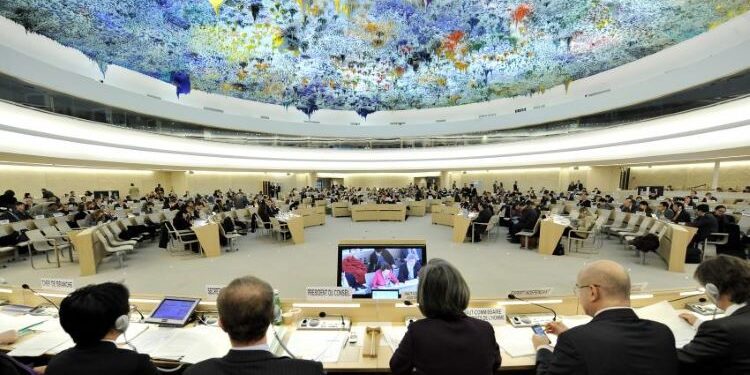Eduardo González
Since January 1, Spain has been a member of the UN Human Rights Council for the period 2025-2027, a subsidiary body of the General Assembly to which our country has already belonged on two previous occasions: between 2011 and 2013 and between 2018 and 2020.
Spain’s entry was adopted last October by the United Nations General Assembly, meeting in New York, a decision that “reflects Spain’s commitment to human rights, multilateralism, the United Nations, tolerance and peace” and represents “one more achievement of our foreign policy that shows the weight and importance of Spain’s voice in the world,” according to the Minister of Foreign Affairs, José Manuel Albares, in a video posted on social media.
“From the Human Rights Council we are going to promote all rights, political rights and economic, social and cultural rights, we are going to protect human rights defenders in the world and we are going to advance gender equality, the rights of people with disabilities and the right to the environment,” he continued. “Spain is going to be at the centre of human rights,” he added.
The Human Rights Council, the main multilateral body for the protection and promotion of human rights in the world, was created by the UN General Assembly in March 2006, replacing the previous Commission on Human Rights, and is based in Geneva.
The Council is a subsidiary body of the General Assembly that meets periodically throughout the year and is intergovernmental in nature. Specifically, the Council is composed of 47 United Nations States elected by the General Assembly through a direct and secret vote for a period of three years.
Membership is divided among the regional groups of the United Nations: seven for Western Europe and other groups (including the United States and Canada), six for Eastern Europe, thirteen for Africa, thirteen for Asia and eight for Latin America and the Caribbean. The mandate of each member State is three years, although it is possible to be re-elected for up to two consecutive periods.
Spain has been part of this body on two occasions: between 2011 and 2013 (it began during the PSOE government, with José Luis Rodríguez Zapatero, but it developed mainly under the presidency of Mariano Rajoy, of the PP) and between 2018 and 2020 (the candidacy was presented in 2017 by the then Minister of Foreign Affairs, Alfonso Dastis, in the Rajoy Executive, but most of the mandate took place under the government of the current president, the socialist Pedro Sánchez).







